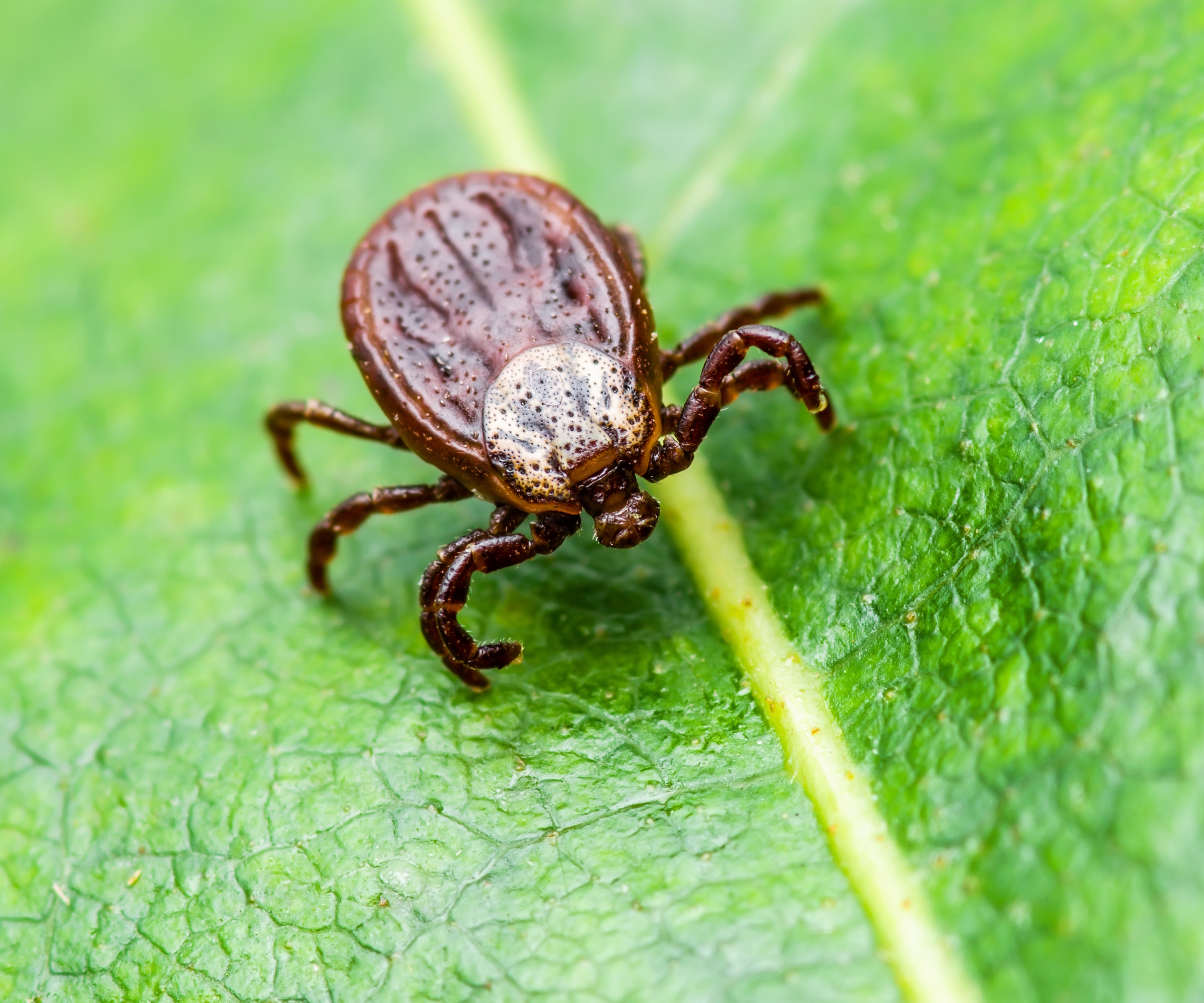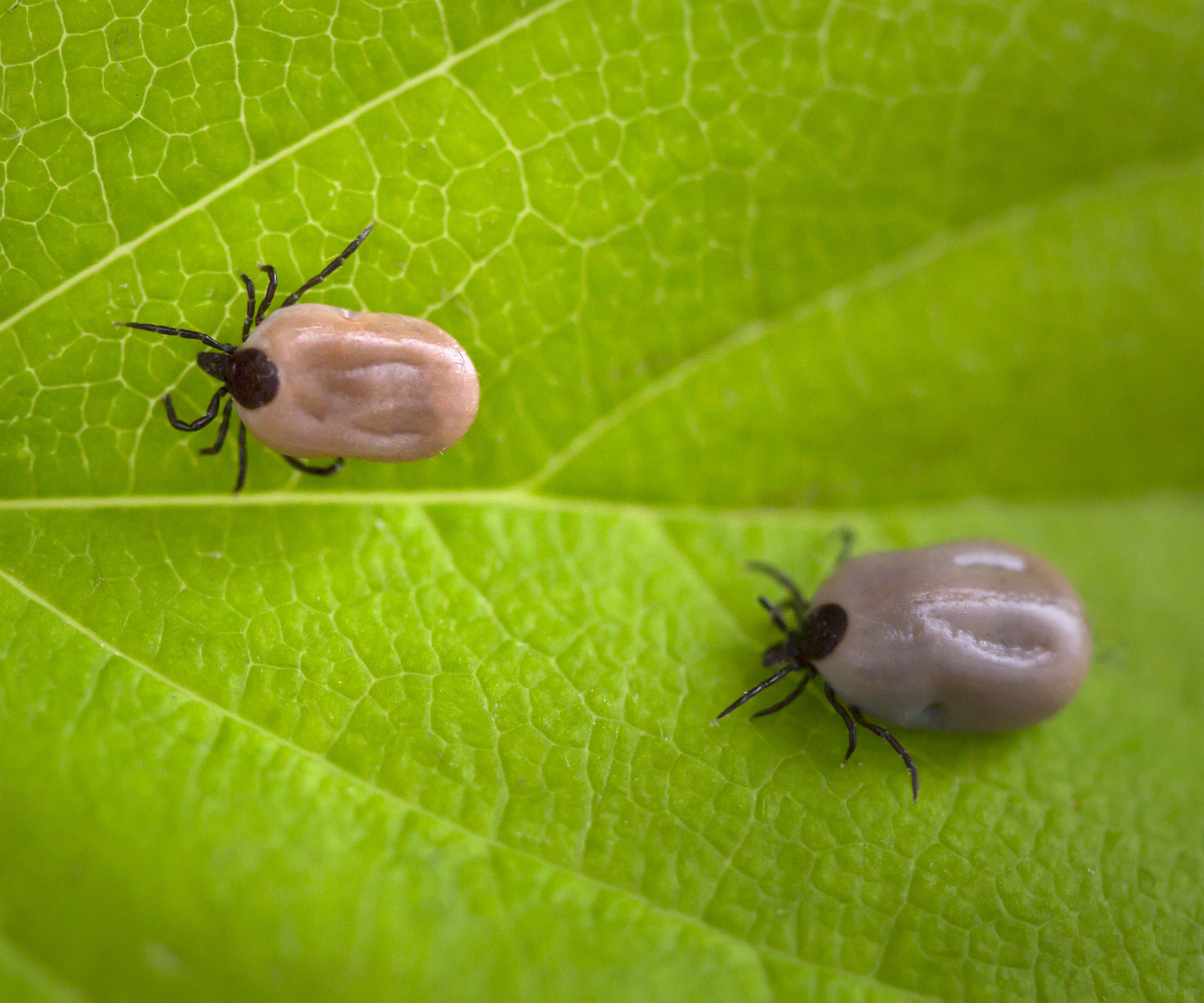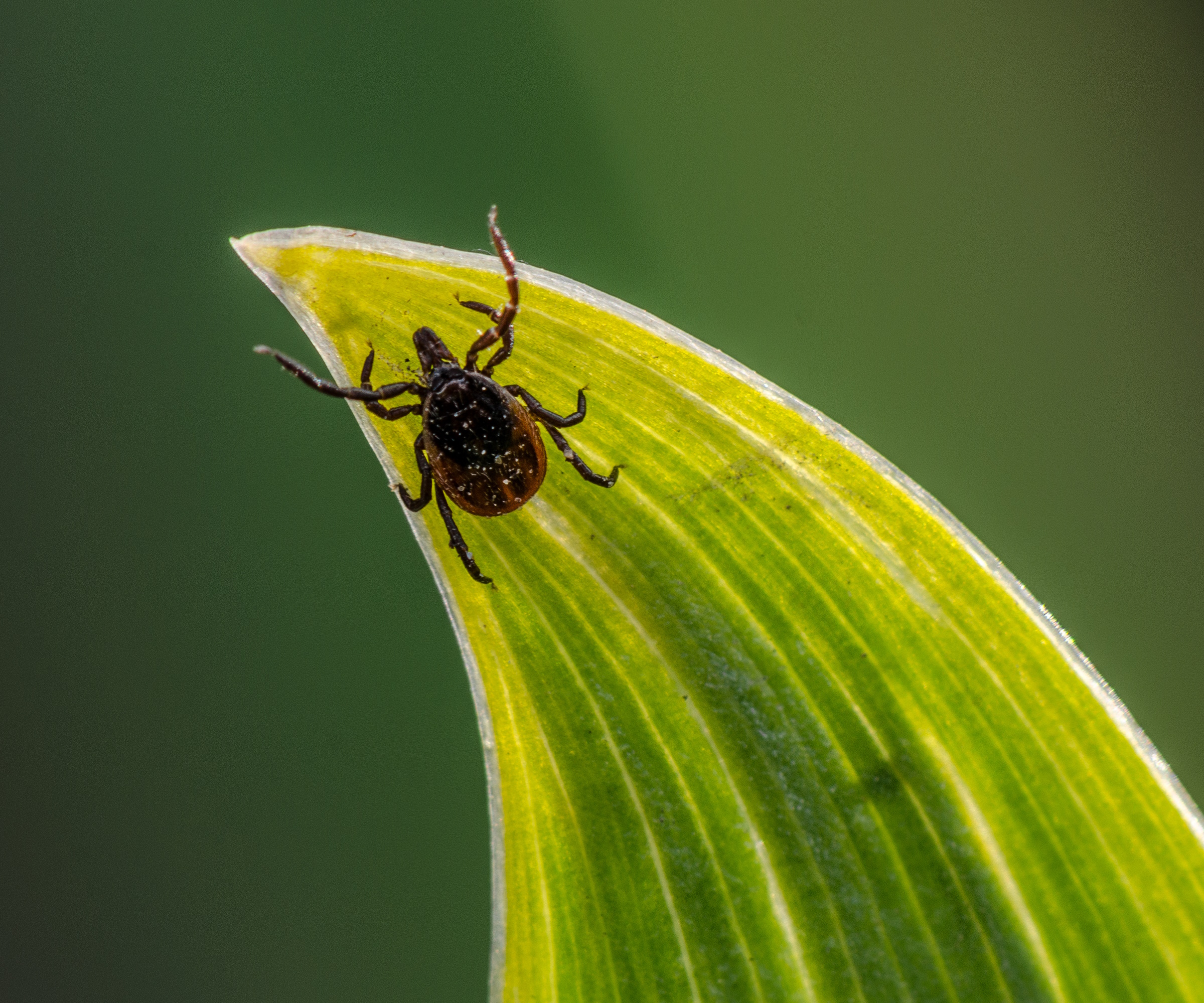Best way to kill ticks in your yard – Experts share 5 methods to prevent an infestation
Ticks are one of the most dangerous pests to our health, so experts say it's best to get rid of them as soon as you see them in your yard

Tenielle Jordison

Dealing with garden pests is just one of those things all gardeners have to do to keep their backyard in pristine condition. Ticks are among the most concerning pests to see as these tiny bugs latch on and spread serious diseases between hosts, endangering the health of your family and pets.
Much like getting rid of fleas or combatting mealybugs in your yard, when you spot ticks, immediate panic can set in. Luckily, however, they are relatively simple to kill and keep at bay so long as you act quickly.
Here, pest control experts have shared their tips for the best way to kill ticks in your yard to free your outdoor space of pests and your mind from stress.

5 ways to kill ticks in your yard
There is no 'one-trick pony' for killing ticks in your yard and keeping them away. Instead, you need to employ a series of tactics to kill existing populations and control the spread.
1. Use a tick repellent to keep small numbers away

In the first instance, it can be a good idea to use some tick repellent to either prevent ticks in your yard or move the odd few along. For this, a 20% to 30% DEET or 20% Picaridin works well, suggests Bob Gilbert, certified entomologist and pest control expert at Blue Sky Pest Control.
‘For those preferring a more natural repellent, many essential oils repel ticks. These natural choices include cedar, lemongrass, peppermint, lemon eucalyptus, and others,’ he adds. ‘However, although they do work, they do not last as long as DEET or Picaridin and need to be applied more frequently according to the manufacturer’s directions.’

Bob is a Board Certified Entomologist with Blue Sky Pest Control in Gilbert, Arizona where he is the Staff Entomologist and technical trainer. Bob has his BS degree from SUNY College of Environmental Science & Forestry in Environmental and Forest Biology and an MS degree in Entomology from Clemson University where he worked in pesticide toxicology. He is a member and volunteer of numerous entomological organizations.
2. Consider a pesticide to control tick populations immediately

Although many of us shy away from using pesticides, chemical control could be the best option for dealing with ticks – especially if you have a well-established infestation. For ticks, opt for a permethrin spray, such as this permethrin insect repellent spray from Amazon, and spray directly on affected areas.
Design expertise in your inbox – from inspiring decorating ideas and beautiful celebrity homes to practical gardening advice and shopping round-ups.
Make sure you follow the manufacturer's instructions and have your essential gardening tools of protective clothing and a mask when spraying pesticides. Like knowing how to get rid of ants in the garden without killing plants, you should ensure the pesticide you are using is safe for the plants in your yard before application.
3. Use Nematodes to get rid of tick larvae

Nematodes can be used to tackle several different pests in your yard, from natural slug control to getting rid of lawn grubs. These beneficial microscopic worms will feast on tick larvae before they hatch, stopping the spread of an infestation, explains Zahid Adnan, gardener and founder at The Plant Bible.
You can get beneficial nematodes online, like this nematode control concentrate from Walmart, and these are safe for humans, pets, and pollinators too. They're the perfect natural control measure, especially considering that ticks can lay thousands of eggs at a time.

Zahid is a renowned figure in the gardening industry, with extensive experience and hard-earned skills in horticulture. As the Founder and Editor of ThePlantBible.com, he provides top-tier content and professional advice to fellow gardening enthusiasts on a daily basis. In addition to his work, Zahid manages a 10-hectare agricultural land and maintains an exceptional garden in his own backyard.
4. Create a hostile barrier

Although we largely encourage the planting of wildlife gardens and full borders, ticks thrive in these dense, covered environments. If you live in an area with a lot of ticks, then a hostile border with stones, dirt, or wood chips in full sun creates a dry barren section that ticks are unable to traverse.
This is good for around your yard to prevent ticks coming in in the first place, suggests Jim McHale, entomologist and CEO of JP McHale Pest Management. ‘Create a 3 foot barrier using wood chips or gravel around the perimeter of your yard to keep ticks out,' he says. 'Ticks prefer cool, moist areas, so trimming large bushes, trees, and shrubs allows for more direct sunlight in your yard, making it a less hospitable environment for them.' he adds.
‘You can also consider a fence around your backyard that is tall enough to keep out deer and other animals that carry ticks.’

Jim McHale is a certified entomologist and President and CEO of JP McHale Pest Management.
5. Prevent ticks by mowing your lawn frequently

In a similar vein to controlling your borders, staying on top of lawn care, especially mowing in spring as ‘tick season’ begins, will prevent ticks from hiding in your lawn, Jim suggests.
‘Frequent mowing and keeping a well-managed landscape are the best ways to reduce tick activity,’ he shares. ‘This will enable your family to enjoy the outdoors with fewer risks associated with disease transmission.’
FAQs
How do you stop ticks from spreading?
Ticks spread by latching onto a host and using them to travel. In yards, this is likely to be wild mammals such as squirrels, raccoons, foxes, and rodents. To prevent them from being carried into your yard, use fences and natural deterrents to prevent animals from getting into your yard, and leave larger areas of short grass or hostile borders with dirt or wood chips to prevent the ticks from crawling from long grasses into the parts of your yard you regularly use.
When working to get rid of ticks, it is important that you wear the right protective clothing to avoid getting bitten, such as long trousers, socks and thick boots, gloves, and a long-sleeved top. When you suspect ticks in your yard, you should: keep any children or pets away from the area, educate family about the dangers of ticks and Lyme disease, and check under pets' fur for any hard lumps that could be a latched on ticks, taking anyone with a bite to a doctor (or vet) for safe removal.
Make sure you also read up on pest control mistakes to ensure you are getting rid of ticks and any other pests effectively.

Chiana is Homes & Gardens’ kitchen appliances editor. With a lifelong passion for cooking and baking, she grew up experimenting in the kitchen every weekend with her baking-extraordinaire Mom, and has developed a great understanding of how tools and appliances can make or break your ideal relaxing kitchen routine.
- Tenielle JordisonGardens Content Editor